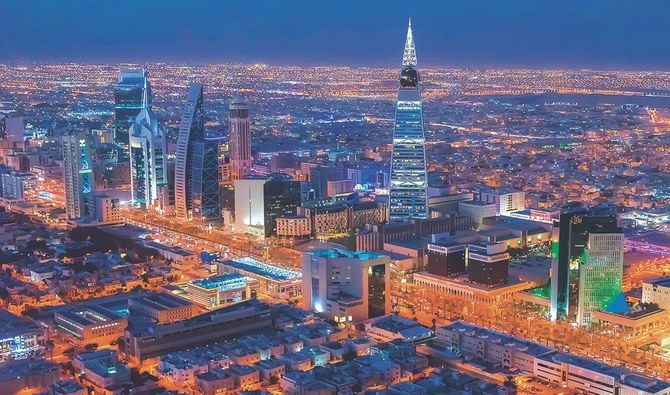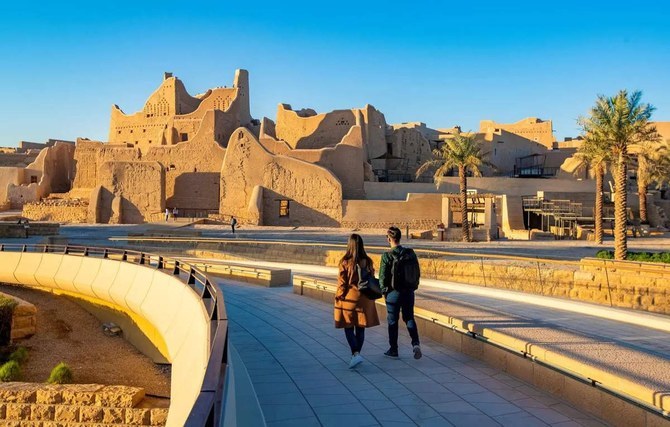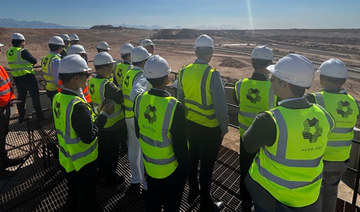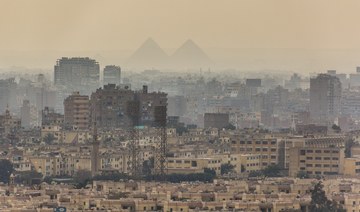RIYADH: Small and medium-sized enterprises are a force to reckon with in Saudi Arabia as the Kingdom, in line with the goals outlined in Vision 2030, continues to diversify its economy which has been dependent on oil for several decades.
Even when COVID-19 disrupted global economies, SMEs in Saudi Arabia remained steadfast in their growth under the visionary leadership of King Salman and Crown Prince Mohammed bin Salman.
In 2022, when the world started rebounding from the fallout of the pandemic, the support offered by the government to SMEs in Saudi Arabia was instrumental in helping them get back on their feet.
With new regulations, reforms and financial support aimed to create an accommodative environment, the government is transforming the SME sector into an engine for economic growth in the Kingdom.
The role of Monsha’at
Saudi Arabia’s Small and Medium Enterprises General Authority, also known as Monsha’at, is fueling the growth of the SME sector in the Kingdom.
The state-run authority offers entrepreneurial platforms such as business incubators, business accelerators, and co-working spaces for SMEs to evolve and thrive in the market. The authority also facilitates government-fee refund, direct and indirect lending programs for SMEs and fast-growing unicorns.
Through these initiatives, Monsha’at aims to successfully achieve the targets outlined in Vision 2030 which include lowering the unemployment rate from 11.6 percent to 7 percent, increasing women’s participation in the workforce from 22 percent to 30 percent, and expanding SME contribution to 35 percent of gross domestic product by the end of this decade.
Monumental growth of SMEs
The growth of SMEs in 2022 was monumental, as the number of registered SMEs in Saudi Arabia hit 892,063 at the end of June, registering a 25.6 percent increase from the fourth quarter of 2021.
In its report titled SME Monitor, Monsha’at said that Riyadh and Makkah were the most attractive regions for startups, accounting for 35.4 percent and 21 percent of the Kingdom’s SMEs respectively in the first half of 2022.
The report also revealed that Saudi Arabia has successfully narrowed the gender gap in the Kingdom, as 45 percent of SMEs are now headed by women.
According to the report, regulatory reforms over the first half of 2022 have played a crucial role in increasing the number of female entrepreneurs in the country, with most of them leading firms in the food, wholesale and retail, health and professional sectors and supporting service industries.

Regulatory changes
It was on June 28 that the Saudi Cabinet approved the new company law in the Kingdom aimed at boosting entrepreneurship.
Ghassan Al-Sulaiman, chairman of the National Center for Family Enterprises, said that the new company law in the Kingdom will play a pivotal role in providing an incubating and stimulating environment for investment, especially in family businesses and small and medium enterprises.
Under the new law, many restrictions in the incorporation, practice and exit phases and restrictions on company names have been removed.
In November, Saudi Arabia’s Cabinet approved the Small and Medium Enterprises Bank System, aimed at providing all its products and services in digital form without the need to establish branches.
After the approval, ministers also signed off the transfer of the Kafalah SME Loan Guarantee Program from Monsha’at to SME Bank.
HIGHLIGHTS
• Saudi Arabia’s Small and Medium Enterprises General Authority offers entrepreneurial platforms such as business incubators, business accelerators, and co-working spaces for SMEs to evolve and thrive in the market.
• The authority also facilitates government-fee refund, direct and indirect lending programs for SMEs and fast-growing unicorns.
• The growth of SMEs in 2022 was monumental, as the number of registered SMEs in Saudi Arabia hit 892,063 at the end of June, registering a 25.6 percent increase from the fourth quarter of 2021.
Earlier in October, oil giant Saudi Aramco launched the Taleed program to support the Kingdom’s small and medium enterprises sector with funding of over SR3 billion ($798 million).
According to a statement from Aramco, Taleed will feature 20 initiatives which are categorized into three diverse groups: job-matching upskilled local talent, creating business opportunities for SMEs, and supporting SMEs and enabling the ecosystem.
In April, the Saudi Export-Import Bank signed a tripartite memorandum of understanding with Monsha’at and the International Islamic Trade Finance Corp. to launch a program to support SME exports.
The agreement aims to accelerate digital transformation among SMEs to boost their export capabilities and provide indirect funding by offering insurance, products and financial guarantees.

“We have a business app that offers to coach SMEs to run their businesses. We have 10 different products for SMEs that offer startup loans, working capital, asset financing, and many other products to support them,” said Wahdan Al-Kadi, Chief business officer at TDF.
“The MoU will also encourage Shariah-compliant SMEs in Saudi Arabia to access new markets,” Hani Sonbol, CEO of the International Islamic Trade Finance Corp., told Arab News.
As Saudi Arabia leapfrogs in the travel and tourism sector, the Tourism Development Fund launched a $133 million fund to support and develop small businesses in the Kingdom in August.
Aligned with the country’s National Tourism Strategy, the “Aoun Tourism” program is expected to fund over 2,000 enterprises in the Kingdom.
The three-year program will ensure funding, education and training for tour guides, operators, facilities, travel agents and event organizers who work within the Kingdom. In an exclusive interview with Arab News, Wahdan Al-Kadi, the chief business officer at TDF, said that it is providing both financial and non-financial support to SMEs in the Kingdom. “We have financial support and non-financial support. We have a business app that offers to coach SMEs to run their businesses. We have 10 different products for SMEs that offer startup loans, working capital, asset financing, and many other products to support them,” said Al-Kadi.
Technological revolution
Despite growing at a massive pace, SMEs in Saudi Arabia will have to transform and become more technologically savvy in their operations to go global and compete internationally, multinational professional services network KPMG said in a report.
The KMPG report outlined that SMEs in the Kingdom should make use of third parties to accelerate digitization, enabling them access to the technical skills and experience required to build new digital solutions.
Sulaiman Al-Mazroua, CEO of the National Industrial Development and Logistics Program, had said that SMEs in the Kingdom should develop innovative technological ideas to fill gaps in logistics.
“This area (technology) in logistics, specifically, is very attractive to small and medium businesses, and innovation in that area is extremely open. So with more SMEs coming in to fill gaps in logistics, you will need less time and cost to produce. And whenever there’s competition, innovation comes to play,” Al-Mazroua told Arab News.
As Saudi Arabia continues its journey to achieve the goals outlined in Vision 2030, SMEs in the nation are expected to emerge as the driving factor which will change the face of the Kingdom in the coming years.



















